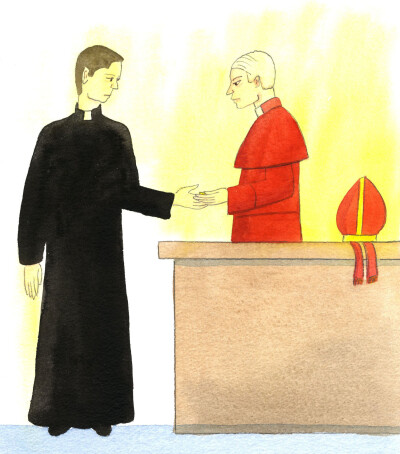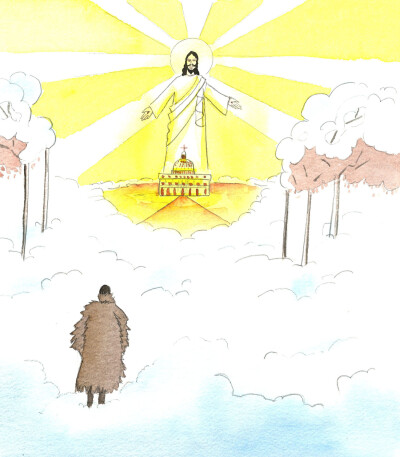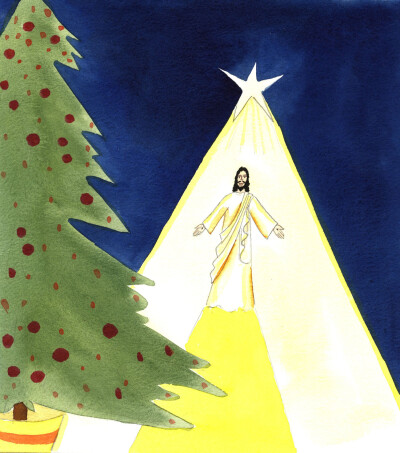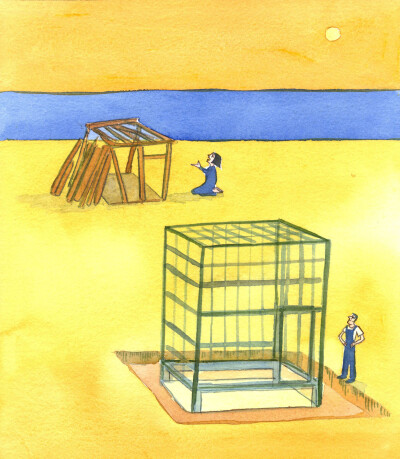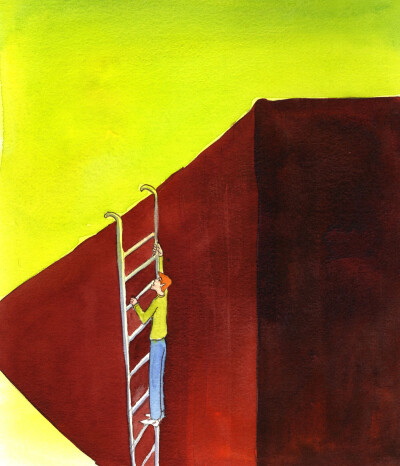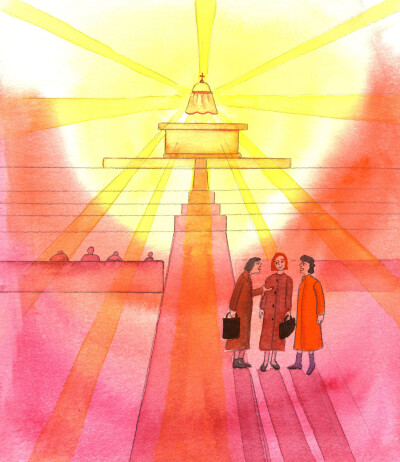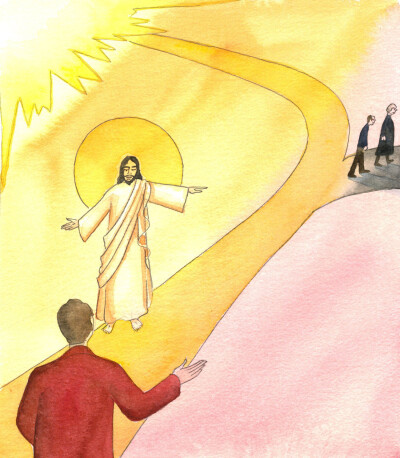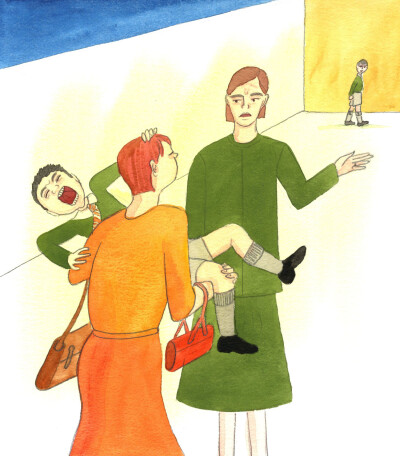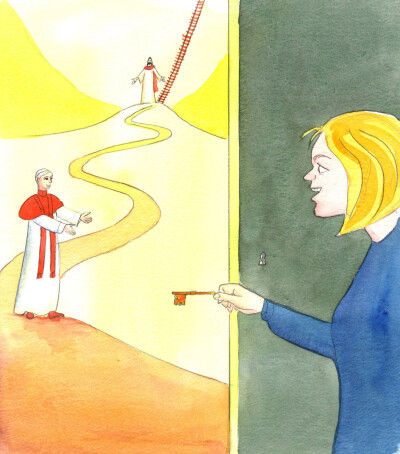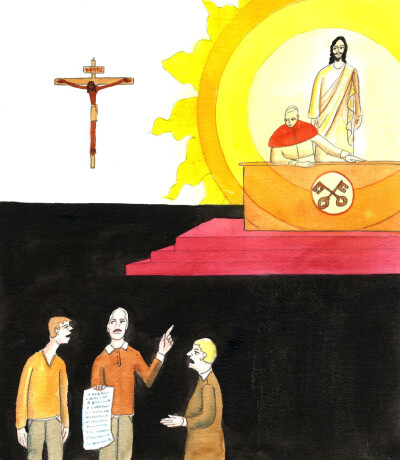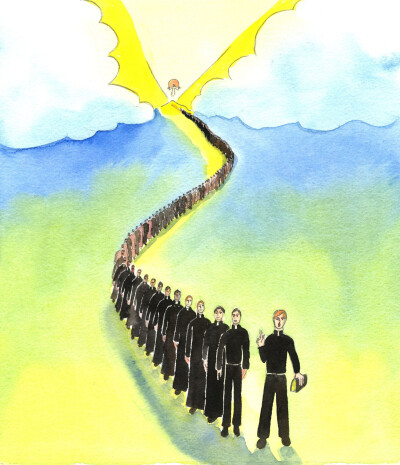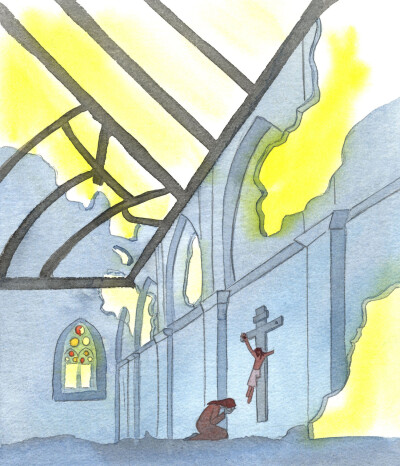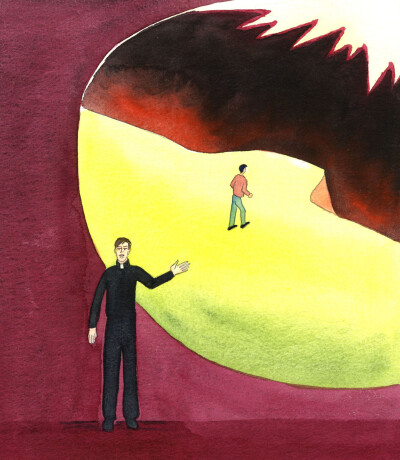Search Page
Showing 561 - 580 of 830
A Bishop is ordained to the fullness of the Priesthood so that he can teach the truths of the Faith with a sincere heart. When a Bishop ceases to believe in the moral teachings of the Church, or her articles of faith, and also criticizes the discipline of the Church which he should uphold, his best course is to resign. Teaching the Faith should be central to his life, not a half-hearted, occasional, sad duty.
Those Christians who enquire and explore, like children in Narnia, find a place where it is already spring-time. In the Catholic Church, Christ already reigns. He has banished the snow and ice by His love, His true teaching, His provision of the precious drink of Eternal Life - His own Precious Blood; and He asks all people to come and live in His Kingdom, here on earth, and then forever, in Heaven.
Although brave or ambitious people might travel to the moon, or explore the whole world, in dangerous conditions, or record the world's flora or fauna, it is the work of the Saints that endures. They have received unparalleled Power: the power of God, in the Sacred Host in Holy Communion. Through prayer and the sacraments they are transformed, and empowered to do the Work of God, which affects the Church and the world.
Without trust in God, people turn away from Him, by a free choice. Millions of people have died with little faith or hope, and have left nothing good on earth. But the work of the Saints endures. Those self-centred people have had nowhere to go except on a single journey, chosen by them, away from God, to the depths of Hell. But the good that the Saints do lives after them, renews the Church, helps the needy, and changes attitudes across the world. The Gospel needs to be preached to the ends of the earth, to bring hope, and joy.
It is really true that God loves us. The message at Christmas is a personal invitation from Jesus Christ to each of us: to repent of sin, to believe that He has come down from Heaven, and to put our trust in Him. Then our lives will change! He gives us, through His Church, all that we need to become holy, to lead holy lives, and to reach Heaven - if we persevere.
Christ asks us to be bolder and braver, in direct proclamation of the Gospel message, that God loves us so much that He came from Heaven to live here as man, to save us from sin, and the fear of death. If we repent and trust in Him, we can be transformed, by the graces received in prayer, and through the Church. At present there is too much 'pre-evangelisation', which is not converting people, but causing some to think conversion is not important.
It is not enough to be content to be spiritual. Some people want to worship God, and serve Him, without being asked to believe in important doctrines; yet sound doctrine provides the framework and the strength to persevere in our spiritual life. If we know the truth we are set free to build with confidence, and to believe that our house of faith will last until we reach Heaven.
A Catholic who puts himself, by a deliberate act or choice, out of Communion with the Church, in mortal sin, is as if standing on a ladder, near the top of a huge pit, in danger of falling; if he dies before he repents and is reconciled he will certainly fall into Hell. He needs God's grace to take the wiser course: to repent, and so climb the ladder and stay on firm ground, out of danger.
Christ wanted to make His Catholic church buildings into 'little Heavens' on earth, where people could offer prayer, in peace, in His Presence, before the Holy Eucharist, with the Angels. When there is constant chatter, this defeats His purpose. The Clergy, above all, should encourage people in church to behave with a reverent silence.
It can be distressining, to see people we know apparently taking the wrong road, away from Christ, and Heaven. Only God knows their final destination; and we are right to hope, and to intercede for them; however, some people use their gift of free-will deliberately to disobey Christ, act unjustly, or ignore the teachings of the Church about charity, and penance; and, like Christ, we must accept that they have made their own choices, even foolish ones.
Just as the one way by which a person can lose weight is by eating less food, so the one way in which to emerge from spiritual and emotional unease is doing what wise people in the Church have always done: by using the Sacraments, especially the Sacrament of Penance ('Confession') and Mass with Holy Communion.
Those who are constantly within the Church but fighting in the Church, protesting against her doctrines and disciplines, will not make much spiritual progress. Discontented, acting against Christ Who has given us the Pope to guide us, and the other Catholic Bishops, the dissenters should do what Saint Peter did before Christ. He surrendered to Christ and to His Will, just as the Saints have, through the ages, in love and obedience. Surrender is the 'key' to joy in Christ.
Just as a school child can learn nothing and make no progress if he opposes his mother's request, and has to be carried screaming into school, so a Catholic can make little progress in prayer or the spiritual life if he or she is constantly 'fighting' - by words, actions and campaigns - against the constant teaching of the Church, and her discipline.
The key to happiness within the Catholic Church, and joy in Eternity, consists of obedience to the Commandments and to legitimate discipline, and humble agreement with every matter of faith and morals - rather than doing what so many Catholics do, as they spend their lives complaining and arguing, and do not allow God to make them joyful.
It is a tragedy, greater than most Catholics realise, that in Europe, including England, it is almost seen as normal Catholic practice to be opposing the constant teaching of the Church, founded by Christ to teach us, and complaining about the disciplines imposed by those in the Church, especially the Pope, who have authority from Christ to impose them.
If a child could look back five centuries, then another five, then another - to when Christ lived on earth, she would see: the very same Catholic Faith is taught today, as in the first century after Christ. God the Father looks upon the earth, glad to see people who believe in the whole Deposit of Faith, handed down from the time of Jesus Christ and the Apostles. Yet very few believe the Faith in its entirety; so, in our age, as in the first century, and the fifth, tenth and fifteenth, there is a great need for witness, evangelisation, and intercession.
Since Christ ascended to Heaven, having asked His disciples to hand on His message, the Clergy have taught the truth all over the world, instructing people, handing on the Deposit of faith; so it is a disastrous aberration, when an individual priest choses to hand on a distorted Faith, or waters it down, or omits what is important to make it more palatable to sinners who want to continue in their sins. Language changes, but not truth. There is no room for 'creativity' in dogma, or in Liturgy.
What we believe affects how we behave, in life; so it is tragic that there is a current mind-set within certain groups of priests, Bishops and Catechists, which makes a thoroughly orthodox Catholic priest into an object of dislike and suspicion. It's as if a person who believes all that the Church teaches, and encourages others to teach it and practice it must necessarily be 'rigid, lacking in compassion', whereas those who criticise him usually offer a distorted, truncated, or watered down version of the Faith.
A soul which has been almost ruined by mortal sin is like a bombed-out church, its interior full of rubble and charred beams. The walls still stand, but there is room enough for the evil one to come in and make that place his own.
We should all be aware that actions have consequences. Everyone deserves to be reminded of these truths: Life ends. There is either Heaven or Hell, in the end, for each of us. That is what every priest and Bishop should say, when he is asked to speak about salvation - even to children. Like adults, children who have reached the age of reason should be encouraged to recognise right and wrong actions, and to form their consciences in accordance with the teaching of the Church.
Showing 561 - 580 of 830

